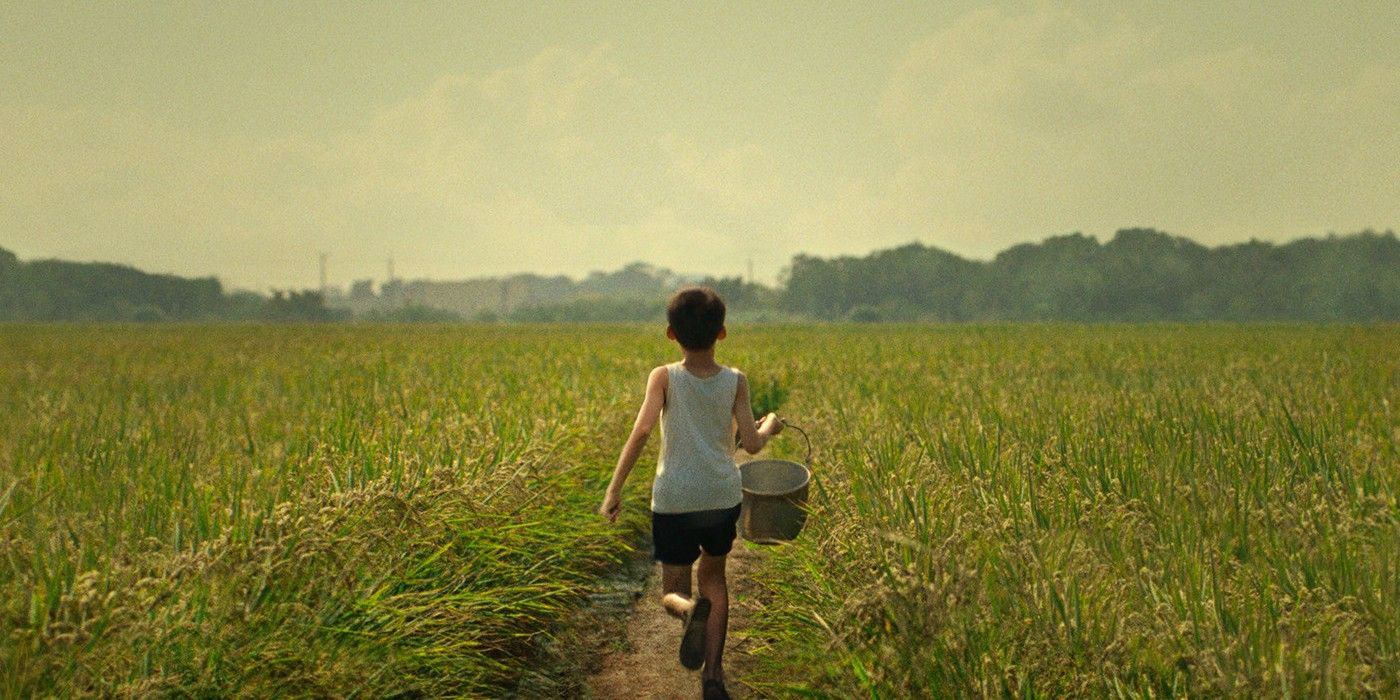In many ways, Alan Yang's film directing debut, Tigertail, resembles a feature-length version of the Master of None episode "Parents", only firmly told from the perspectives of the immigrant parents at its core. Forgoing the comedy of that acclaimed Netflix series (which he co-created with star Aziz Ansari), Yang delves further into the breadth of the Asian-American experience here, crafting a story that feels deeply personal yet full of universal themes about parents and children struggling to understand one another, in spite of being painfully similar in many ways. And sure, he wears his influences on his sleeves, but also does what all great storytellers do and creates his own style from that foundation. Anchored by Yang's sensitive direction and a Tzi Ma performance teeming with life, Tigertail is romantic, thoughtful, and heartbreaking all at once.
Beginning in 1950s Taiwan, the movie follows Pin-Jui/Grover (played by Hong-Chi Lee as a young man), a poor yet buoyant factory worker who dreams of making a better life for himself and his loved ones, including Yuan (Yo-Hsing Fang), the wealthier, free-spirited woman he's cared for since they were children. But when given the opportunity to travel to the U.S. in an arranged marriage with Zhenzhen (Kunjue Li), a person he barely knows, Pin-Jui takes it, leaving his old life and Yuan behind. Years later, in the present-day, the older Pin-Jui (played by Tzi Ma) is a solemn and stubborn divorcee trying to connect with his adult daughter Angela (Christine Ko), who's more like him than either of them realizes. Yet, in order to do so, Pin-Jui must find a way to make peace with his regrets and reflect on his past while helping Angela to keep moving forward in her life.
Loosely inspired by Yang's real-life father and his own story, Tigertail is a richly atmospheric meditation on the choices people make in their lives when it comes to love and their careers. It also provides a timely-as-ever reminder about the stories of immigrants; no two are exactly the same and those of people who travel afar to build a more comfortable life for themselves deserve to be told just as much as the ones about those who want to change the world. Indeed, it's refreshing to see a film about an immigrant as compelling, yet flawed, as Pin-Jui. Far from idealizing him or any of its characters, Tigertail portrays its protagonist as being more than a victim of circumstance, yet always remains empathetic towards him and his reasoning for his decisions. Both Hong-Chi Lee and Tzi Ma breathe further life into him, skillfully capturing the essence of a younger man not yet beaten down by life's disappointments and an older one who yearns to rekindle his passion for existing.
As great as they are, though, it's Tzi Ma who truly gives Tigertail its beating heart. Yang shoots many of the actor's scenes in closeup to better express the emotional subtleties of his beautiful performance, yet also recognizes when to pull the camera back and allow the shifts in his body language to speak to Pin-Jui's changes in mood and levels of comfort. At the same time, Yang's script carves out room to give the women in the movie rich inner lives and problems of their own, especially Kunjue Li as Zhenzhen and Ko as the grown-up Angela (with Fiona Fu doing equally excellent work in her brief appearances as the older Zhenzhen). Tigertail is foremost a showcase for the accomplished veteran Ma (whose career got started in the '70s), yet it doesn't neglect its ensemble and takes the time to make Pin-Jui's relationships feel as meaningful to the audience as they do to him.
Aesthetically, Tigertail is a lovely piece of impressionist storytelling that brings to mind the work of Wong Kar-wai (whom Yan has readily acknowledged as an inspiration for his feature debut, along with other active Asian auteurs like Hou Hsiao-Hsien). If the film doesn't achieve the same level of poetry of In the Mood for Love with its rhythmic montages juxtaposing Pin-Jui and Angela's shared solitude - or navigate through time as deftly as the non-linear 2046 - it's a testament to what Yang does accomplish that Tigertail invites those comparisons at all. He similarly imbues the story with a greater sense of authenticity by having his actors speak in english, Taiwanese, and Mandarin as befits the moment, be it set in the past (which Yang and DP Nigel Bluck photograph on 16 mm film, giving it the feeling of a faded memory) or the present, where everything in clear and crisp (and shot digitally). Michael Brook's melancholic score compliments these visuals while serving to establish the movie's deliberately slow, yet never laggy, sense of pacing.
An excellent debut for Yang, Tigertail doubles as a reminder of not only how (as far as the mainstream goes) under-appreciated Tzi Ma is as a character actor, but also how varied, yet universally accessible, the stories of immigrants are and should be represented onscreen. Thanks to Netflix, it's the type of film that now has a platform to reach a much larger audience than it would've just a few years ago, and deservingly so. Particularly for those who've been looking forward to seeing how Yang does as a filmmaker after his time writing for beloved TV series like Parks and Recreation (in addition to co-developing Forever and Master of None), Tigertail is absolutely worth your time. Like a trip down memory lane, it might even lead you to re-examine your own understanding of the past, how you got here, and where you're headed next.
Tigertail is now streaming on Netflix. It is 91 minutes long and is rated PG for some thematic elements, language, smoking and brief sensuality.



